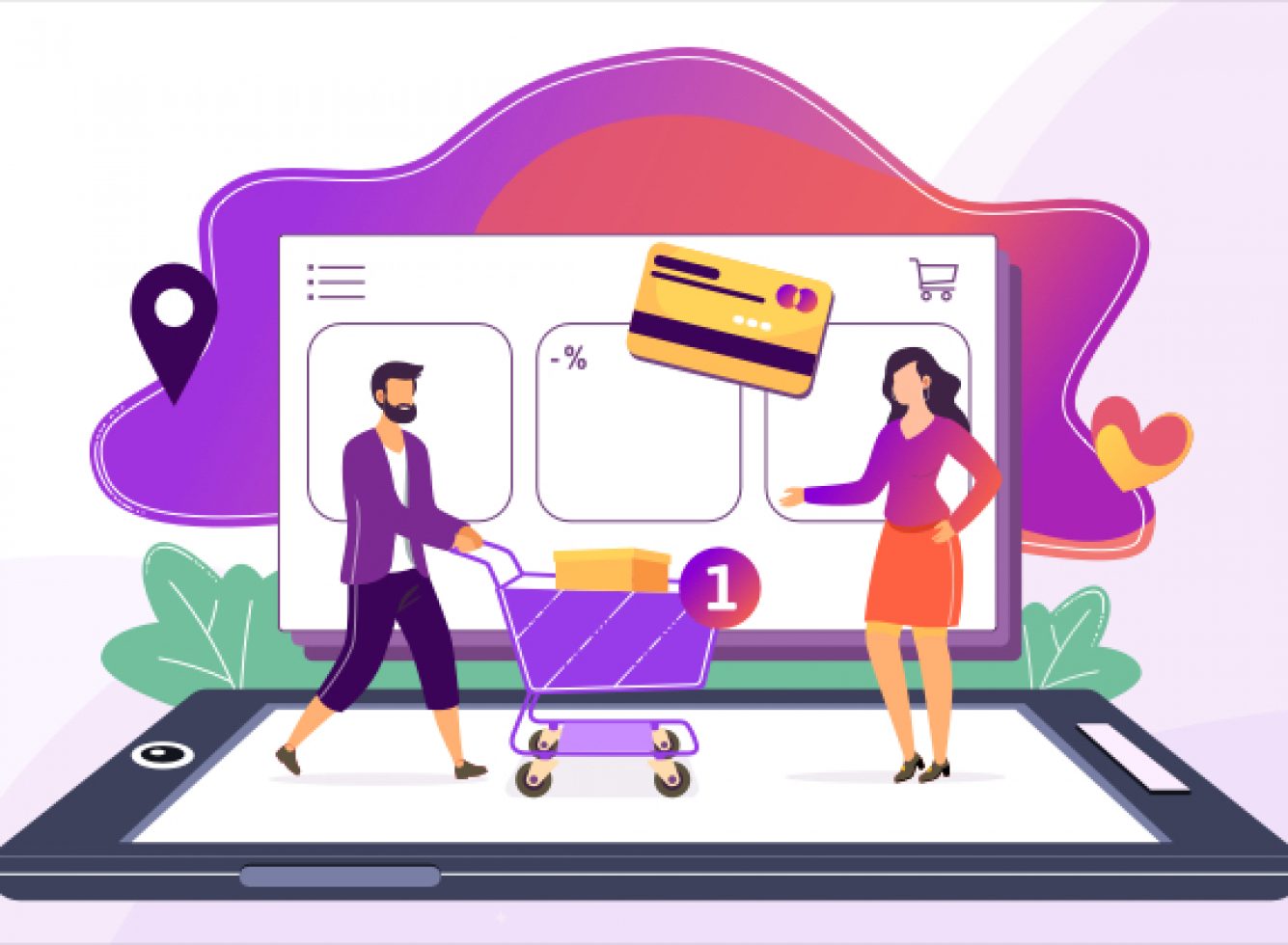How to turn ecommerce customers into lasting friends of your business

The fact that this shift – away from the High Street and toward online shopping – is likely to endure beyond the end of the lockdown means that there’s never been a better time to start thinking about role of customer relationship management in ecommerce.
Customer relationship management in ecommerce needs to respond closely to the trends which have emerged during the past three months. Many of these trends were detailed in a survey carried out by The Drum marketing platform, which analysed data from 30,000 customers. This found that in the early days of lockdown consumers were targeting food, drink and cosmetics, followed by the toys and hobbies they felt they needed to keep themselves and their children entertained. This then morphed in what are known as ‘the new essentials’ – which referred to consumers planning to spend on home office equipment, kitchenware, health and fitness products and more toys and games.
Any ecommerce business which wants to thrive in the new environment will have to stay keenly aware of the latest ecommerce trends and tweak their customer relationship management in line with what customers are now looking for.
Emerging ecommerce trends
The role of customer relationship management in ecommerce depends upon being able to predict what customers will be looking for next almost before they know themselves. According to The Drum survey, for example, by the time April came round customers were switching their focus to electronics and 25% of those who were under 45 regarded these as impulse purchases which offered a means of entertaining themselves while unable to leave their homes as much as usual (if at all).
In addition to this, sales of DIY equipment and household items also rose, as people decided to make use of the extra time, they had on their hands in order to get to those jobs around the house that they had been putting off for ages. The brands which deal in items such as these should have been alert to this possibility as soon as lockdown started, which is when the jokes about building a new patio or finally redecorating the kitchen also started. They could then have responded by reaching out to existing customers with:
- A reassurance that they were still able to supply products in a safe manner
- Added value information such as tips and tricks for basic DIY projects
Another trend which emerged during lockdown was a shift toward more local shopping. On one level this might simply be a reaction to wanting to minimise any time spent out and about, but the shift seems to have been deeper than that. Research by Deloitte found that 59% of UK consumers were opting for local shopping because they wanted to support local stores. Although ecommerce may seem like the antithesis of popping out to a corner shop, this instinct toward localism is one which ecommerce businesses can take advantage of. In simple terms, people want to support their local shops because they care about them. There is a relationship between consumer and trader which goes beyond just commerce and becomes more like a friendship. One of the keys to understanding the role of customer relationship management in ecommerce lies in being able to build the same kind of relationships through the screen of a laptop, tablet or smartphone.
Independent online retailers
There is some evidence that this kind of shift is already happening in the ecommerce realm. The number of consumers turning to independent online retailers rather than large established brands has risen from 20% to 40%. To some degree this may be driven by concerns about large retailers being able to fulfil orders, but it is also a fantastic opportunity for smaller retailers to create a strong ecommerce presence, or to work on the customer relationship ethos of their existing online presence.
The question, of course, is how an ecommerce business can go about forging this kind of relationship with customers, and the answer is….it depends. It depends on the type of product or service being provided and on the kind of customer being targeted. What all of the advice boils down to, however, is for ecommerce brands to develop customer relationship management tactics which have the effect of turning them into something more than just somewhere to shop.
A specialist bike shop, for example, as well as simply showcasing the items they stock, could create a blog dealing with the latest trends in cycling, offering exercise programmes for the many people who are new to cycling and encouraging customers to interact by sharing their achievements, from a 25 mile round trip up a mountain to a child’s first journey without stabilisers.
This relationship doesn’t have to be confined only to the website, of course. A clever use of social media platforms such as Twitter and Facebook will enable ecommerce businesses to open up a two-way conversation with their customers. A cake shop, for example, while still serving customers by delivering items, could also share recipes so that customers can try to replicate some delicious treats in their own kitchens.
One of the issues which any ecommerce business will face for as longs as COVID-19 continues to be present will be the question of whether customers regard them as having ‘done the right thing’. Without naming names, it’s quite easy to think of many businesses – some large brand names amongst them – which have severely damaged their branding during the COVID-19 crisis through actions such as letting staff go without furloughing them or insisting on people working in conditions which might not be entirely safe.
Clever ecommerce relationship management will consist of not only doing the right thing where possible, but also of making sure that this is communicated to customers. A manufacturing company could switch to making face masks, for example, and could share the endeavour with customers by emailing simple patterns for them to make their own face masks at home. A shop which sells food and drink could open early one day a week to serve key workers, and share this initiative on their Twitter feed. If customers feel that a business is acting in a way which shows we genuinely are ‘all in this together’ this will create a sense of trust and empathy which will extend long beyond the end of the pandemic.
None of this will count for anything if the online presence in question isn’t delivered in a professional and accessible manner. Using platforms like Shopify and Magento to build an ecommerce website combines the best of all worlds – it makes it easy to put together a simple, functional website which enables a business to reach out and establish a foothold in the ecommerce market, and at the same time it offers enough flexibility for the website to grow and change through simple add-ons as the business itself expands and shifts.
Working with a top flight web design company – either to build a site from scratch or to revise an existing online presence – will mean that the finished site is an accurate representation of the ethos of a business. It is this ethos – whether it’s a caring sharing approach to clients, the promise of high end luxury, an off-beat appeal to non-conformists or anything else – which will form the basis of customer relationships, as people buy into the ‘personality’ which your branding and online activity is expressing. To restate, however – if customers find it difficult to navigate your site, access the checkout page or load the basket then the goodwill you’ve generated elsewhere will quickly evaporate.
The lockdown and the pause in most businesses which has resulted, offers what may well be a once in a lifetime opportunity for any ecommerce management to take a step back and reconsider exactly how they relate to their customers, and vice versa. Are you reaching out beyond simply selling stuff? Are you offering extra services – such as recipes, advice or a newsletter – which go above and beyond your core business?
Is there a two-way relationship between you and your customers which means they’ll turn to you first when they need to buy something, based on the trust you’ve engendered? By the time your business emerges from lockdown you should be able to answer yes to all of these questions, and to have an online presence which, across every platform, reflects a deep understanding of the role of customer relationship management in ecommerce.






